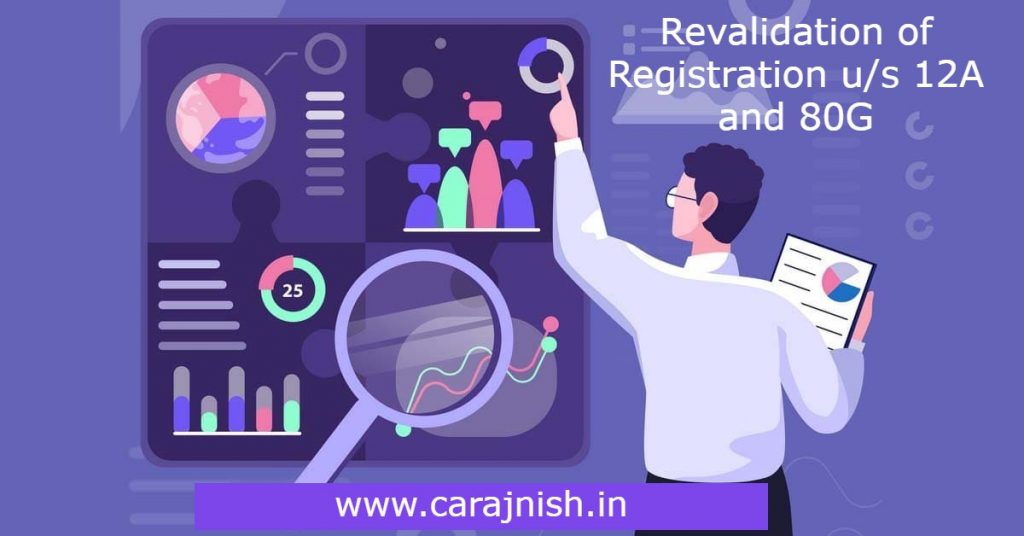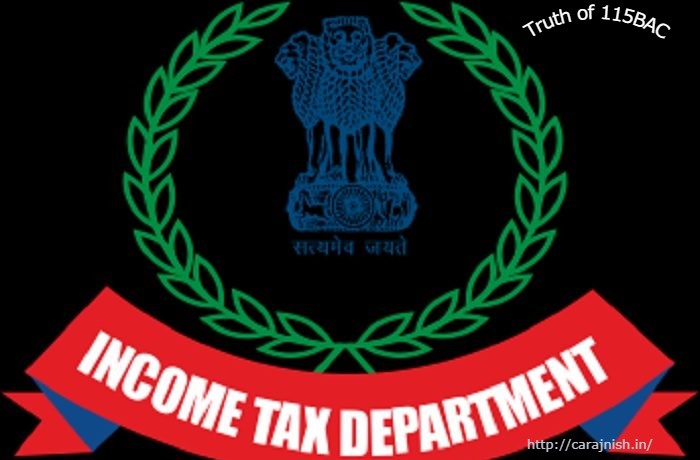Vivad se Vishwas: Budget Proposal
Over the period of time, the Government of India has introduced various amnesty scheme. The rationale behind these amnesty schemes was to settle dispute and litigation which are pending for a long time.
In 1998, the Government introduced “Kar VivadSamadhan Scheme (KVSS)” which was available if there was an outstanding demand as on 31 March 1998 and appeal was pending at any level. The amount payable under the scheme was 35% of disputed income in case of company/firm and 30% of disputed income in the case of any other assessee.
In 2016, the Government introduced “Direct Tax Dispute Resolution Scheme” which was available if appeal was pending before Commissioner of Income Tax Appeal CIT(A) or Commissioner of Wealth Tax Appeal CWT(A) on 29 February 2016. The amount payable under this scheme was disputed tax and interest till the date of assessment in case the disputed tax was up to Rs.10 lakh, if disputed tax exceeded Rs.10 lakh, then apart from disputed tax and interest, minimum penalty of 25% was also imposable.
Now, the Government in the Budget 2020 has proposed a new Direct Tax amnesty scheme ‘Vivad Se Vishwas’ with a view to reduce litigation. The Finance Minister (FM) in her budget speech stated the need of the scheme as below:
“Currently, there are 4,83,000 direct tax cases pending in various appellate forums i.e. Commissioner (Appeals), ITAT, High Court and Supreme Court. This year, I propose to bring a scheme similar to the indirect tax Sabka Vishwas for reducing litigations even in the direct taxes.”
In line with the above proposal, the Government has laid down the Vivad Se Vishwas Bill, 2020(The Scheme) before the Parliament on 5th February, 2020.
Tax disputes consume exorbitant about of time, energy and resources both for the government as well as for taxpayers. It is more worrisome for the government as collection of revenue is deferred. Therefore, there is an urgent need to provide for resolution of pending Income tax disputes.
While presenting Union Budget 2020, the Finance Minister announced the Vivad se Vishwas scheme (the Scheme), pursuant to which the Direct Tax Vivad se Vishwas Bill 2020 (VSV/Bill) was introduced in the Lok Sabha on 5 February, 2020. The objective of VSV is to reduce pending income tax litigation, generate timely revenue for the government and benefit taxpayers by providing them peace of mind, certainty and savings on account of time and resources that would otherwise be spent on the long drawn and vexatious litigation process. VSV offers waiver of interest, penalty and prosecution for settlement of these disputes. There were certain amendments made to widen the scope of VSV and to ease the compliance process; the Bill was passed by Lok Sabha on 4 March, 2020. The Rajya Sabha passed the Bill by voice vote as it is a money bill, subsequently the Parliament has approved the bill on 13 March, 2020.
The key highlights of the Act have been discussed in this article.
Which cases are covered under VSV?
The following cases are covered under VSV which are pending as on 31 January, 2020:
- Tax appeals pending before the appellate forums, i.e. Commissioner (Appeals), Income-tax Appellate Tribunal (ITAT), High Court (including Writ Petition), and Supreme Court (including Special Leave Petitions);
- Cases where order has been passed but the time limit for filing appeal has not expired;
- Cases where objections have been filed before the Dispute Resolution Panel (DRP) or DRP has given directions but the Assessing Officer is yet to pass the final order;
- Cases where revision application under Section 264 of Income tax Act, 1961 is pending before the Commissioner/Principal Commissioner;
- Matters involving arbitration, conciliation or mediation, even though no appeal is pending.
Which cases are not covered under VSV?
- Tax arrears in respect of:
- Assessment made as a result of search and seizure where the disputed tax is more than INR 5 crore per year;
- Prosecution initiated before filing declaration;
- Undisclosed foreign income/assets;
- Information received as per section 90 or section 90A;
- Selective issues from an appeal;
- Cases pending before Authority of Advanced Ruling;
- Cases pending under Wealth Tax, Securities Transaction Tax (STT), Commodity Transaction Tax (CTT) & Equalisation levy;
- Penalty appeal where quantum appeal of applicant is pending;
- Order passed under Conservation of Foreign Exchange and Prevention of Smuggling Activities;
- Prosecution initiated or convicted under certain Acts such as Prevention of Corruption Act, Prevention of Money Laundering Act etc.;
- Person notified under section 3 of the Special Court Act, 1992 (Trial of Offences Relating to Transactions in Securities).
What is the amount payable under VSV?
|
Sr. No. |
Nature of tax arrear |
Appeals filed by Taxpayer |
Appeals filed by department/ Appeal filed by assessee decided in favour for earlier years before higher forum |
||
|
Amount payable before 31 March 2020 |
Amount payable after 1 April 2020 & up to 30 June 2020 |
Amount payable before 31 March 2020 |
Amount payable after 1 April 2020 & up to 30 June 2020 |
||
|
A. |
Where tax arrears consists of disputed tax, interest or penalty |
100% of disputed tax |
110% of disputed tax |
50% of Amount of disputed tax |
55% of disputed tax |
|
B. |
Where tax arrears related to disputed interest/penalty/fee |
25% of disputed interest/penalty/fee |
30% of disputed interest/penalty/fee |
12.5% of disputed interest/penalty/fee |
15% of disputed interest/penalty/fee |
|
C. |
Search cases |
125% of disputed tax |
135% of disputed tax |
62.5% of disputed tax |
67.5% of disputed tax |
What are the procedural aspects?
- Declarant shall be required to file a declaration on or before the last date (as shall be notified) with the Designated Authority (DA) for each appeal;
- Discussions with DA on any calculations of amounts payable;
- DA to evaluate the declaration and grant certificate for amounts payable within 15 days of filing the declaration;
- Declarant to make payments of amounts within 15 days and submit proof of such payment to DA;
- Declarant to withdraw the appeals;
- DA to pass an order stating declarant has made the payment.
Other critical points of consideration
- In case CIT(A) has issued an enhancement notice, then the disputed tax shall be increased by issues mentioned in the enhancement notice;
- Where multiple issues are covered in an assessment order, but assessee has filed appeal for selective issues only, then interest/penalty shall be waived only on issues under appeal;
- Secondary adjustment provisions shall be applicable for Transfer Pricing cases; it is however applicable from AY 2017-18 onwards.
- Currently, there are around 4,83,000 direct tax cases which are pending at different forums. This includes 3,41,000 pending before CIT(A), while 92,205 cases were pending before ITAT as on March 31, 2019. Besides, 43,224 and 6,188 direct taxes-related cases were pending before High Court and Supreme Court as on December 31, 2018, respectively. (Source-Economic Times)
Above number shows that around 89% (approximately) of the cases are pending before lower authorities i.e CIT(A) and ITAT.
These taxpayers are still having the remedy before High Court and Supreme Court if they consider their cases to be strong. So this amnesty scheme may not attract those taxpayers.
- The scheme covers appeal pending as on 31 January and orders for which time limit of appeal has not expired, however, it is silent on cases wherein appeal has been admitted with condonation of delay. Will the appeal accepted with condonation of delay be termed as appeal pending on 31 January is a question?
Hon’ble Supreme Court had addressed a similar issue under Kar VivadSamadhan Scheme, in the case of Computwel Systems (P.) Ltd. v. W. Hasan [2003] 129 Taxman 67 (SC) and held that pendency of application for condoning delay in filing petition under section 264 of the Income Tax Act, 1961, at the timeof filing of petition under Scheme, would not make declaration under the scheme maintainable.
The present amnesty scheme does not cover such revision petition for which time limit of petition has not expired. However, an analogy can be drawn from this case that, the cases of condonation was also admissible under the Kar VivadSamadhan Scheme so it may be covered under the present scheme as well.
- Before assessment year (AY) 2017-18, section 115BBE which provides for rate of tax for income referred to in section 68 to section 69D, had prescribed 30% rate of tax. The section was amended by Taxation Laws (Second Amendment) Act, 2016, w.e.f. 1-4-2017 whereby the rate was extended to 60% which would effectively amount to 78% due to surcharge and cess of 25% and 4% respectively.
This would result in different amount of disputed tax under the scheme for assessees who have committed same act.
For example, if two assessees Mr. A and Mr. B had not disclosed income by way of cash receipt of 50 lakh each in the AY 2016-17 and 2017-18. Mr. A’s disputed tax under the scheme would be based upon 30% rate plus cess and surcharge (if applicable) while Mr. B’s disputed tax would be based upon 78% rate.
- Bombay High Court in the case of D’souza Motors v. ITSC [(2005) 154 Taxman 25 (Bom.)(HC)] under KVSS had dealt with a situation where no order had been passed by Settlement Commission under S. 254D(4) on assessee’s application till the time designated authority granted certificate to assessee under KVSS. The High Court held, “pendency of application before Settlement Commission would not make KVSS inapplicable and assessee was entitled to withdraw cases pending before Settlement Commission”.
The principle laid down by Bombay High Court would be relevant in the present scheme as well because withdrawal of appeal is also condition under the present scheme as well.
- Article 14 of the Constitution of India (COI) “Equality before the Law” provides that the state shall not deny to any person equality before the law or the equal protection of the laws within the territory of India. The Budget 2020 provides for payment of 50% and 55% of disputed tax in case of departmental appeal while the same is 100% and 110% in case, the assessee has filed appeal.
- Kar VivadSamadhan Scheme 1998 did not cover departmental appeal so the constitutional validity of this scheme was challenged before the Delhi High Court in the case of All India Federation of Tax Practitioners v. Union of India[1998] 101 TAXMAN 401 (DELHI), wherein the High Court held that there should not be any discrimination between revenue and assessee as it will be against Article 14 of COI so, the scope of Kar VivadSamadhan Scheme 1998 should be extended to departmental appeal as well.
- Although, the present scheme covers departmental appeal, however, the difference in payment terms (100% and 110% in case assessee is in appeal and 50 and 55% in case of departmental appeal) may be a question.
Conclusion
The objective of the government is clearly to reduce pending income tax litigation and give taxpayers lucrative benefits, such as-
- Taxpayers can pay the outstanding tax amounts due and be free from any other consequences under the Income Tax Act, 1961;
- Taxpayers will get substantial relief in the form of waivers of interest, penalties and fees;
- There will be complete amnesty from prosecution proceedings;
- Declaration shall not be considered as settling any preference for the taxpayer;
- Declarant is given option to avail MAT credit/carry forward losses/depreciation;
- Refund of taxes (without interest) shall be given in case excess taxes are paid in course of litigation.
However considering the strict timeline, and with the government yet to issue procedural forms, it is likely that there might be some relaxation in the timelines for a successful implementation.



